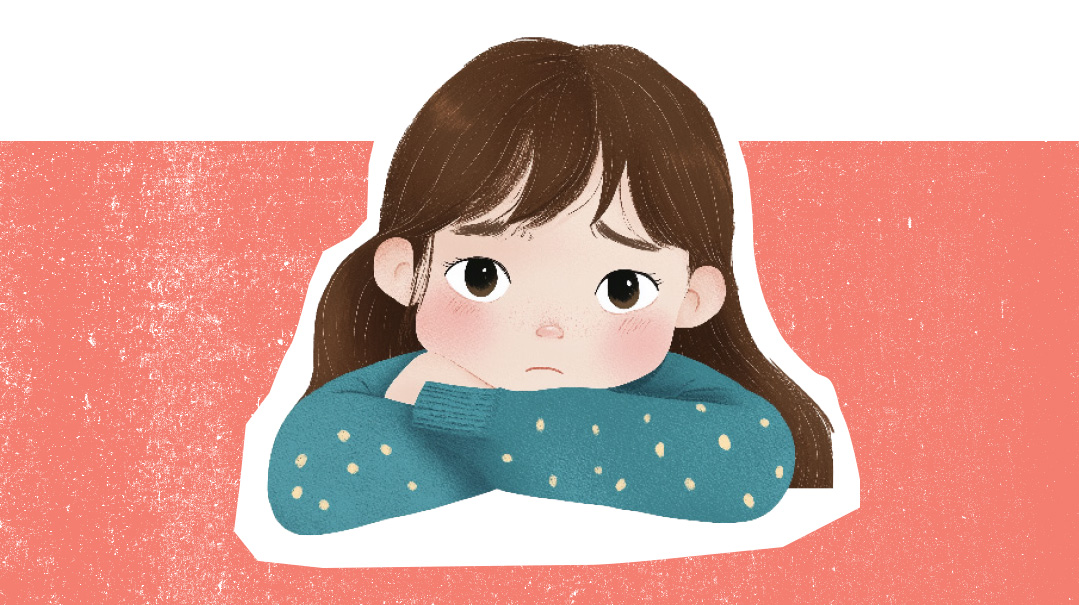Mindscape
| January 3, 2023Getting to the core of who we are takes thought and may sometimes require deep inner work

Mindscape
Abby Delouya RMFT-CCC, CPTT
Quick Tips
How to be your own… you
No, that was not a typo. I see so many women struggle with just being themselves — especially in the face of certain life transitions or challenges. A woman in her twenties will still be forming her self-concept and self-identity; when you add marriage and young children to the mix, your “you” can become blurry. While spouses, children, jobs, and environments will influence and inform our interactions, they are not essentially who we are. If we allow these roles to take us over completely, with no thought to our core selves, then dysfunctional things like enmeshment, or identity crises can happen which destabilizes healthy family function.
Getting to the core of who we are takes thought and may sometimes require deep inner work. When we take the time to really nurture our essence and find out who we essentially are and nurture individual soul growth, we become healthier, happier people and perform better in our roles as wives, mothers, daughters, friends, employees, etc. But let’s start with the easy questions:
What do I actually enjoy (and not just because others do)?
This includes food, leisure activities, taste in clothing styles, etc. Write a list for reflection.
What are my core values?
For a fun little activity, pretend you’re writing a shidduch résumé, but instead of describing your ideal spouse, describe your ideal self.
What are the boundaries that help me feel regulated/emotionally safe?
This could be anything from bedtime and exercise routines to choices in friends and outside support.
If you have a hard time answering these three questions, take it as a wake-up call to start getting to know yourself a little better.
In the News
Quiet Quitting
A recent survey showed that 63 percent of employees feel that they can’t successfully disconnect from work or take time away, an obvious setup for burnout. But a new trend on the rise called quiet quitting might be the solution to preserve employees’ mental health.
Quiet quitting describes the phenomenon in which people set up clear boundaries between work and home. It entails letting go of the need to overachieve, by leaving work on time, ignoring work-related calls/emails outside of office hours, and turning down tasks that are not in one’s job description.
Relationship Reflections
The three C’s
Healthy relationships are based on three core “C’s”: communication, compromise, and commitment.
Communication includes both verbal and nonverbal communication as well as active listening. Compromise means finding common ground, which includes expressing opinions, and understanding and accepting differences. Commitment means putting each other and the relationship first.
Jargon Decoded
Cognitive dissonance
Cognitive dissonance is a state in which a person has conflicting thoughts and perceptions of an event or situation, commonly linked to personal behaviors. An example would be someone who knows that smoking is dangerous and is opposed to smoking in theory, but still smokes.
Everyone experiences cognitive dissonance in some form in their lives. It’s more common to feel discomfort and an urge to resolve the dissonance when the cognitions are important to you or they conflict heavily with each other.
Abby Delouya, RMFT-CCC, CPTT is a licensed marriage and individual therapist with a specialty in trauma and addiction.
Brick by Brick
Sara Eisemann
“If you continue to carry the bricks from the past, you will end up building the same home.”
—Anonymous
“Every mitzvah you do is another brick in the Beis Hamikdash.” How many of us grew up with this visual, feeling so empowered by our ability to make a real difference. We understood that our behavior had significance, the power to create something lasting.
From the vantage point of adulthood, it’s no less a powerful idea. The choices we make, the behavior we exhibit, the feelings we do or don’t express, all merge together to create our homes, both the home we live in and the home we invite others to join us in.
So what type of bricks will we be building with? Unless we bring conscious thought to the process, most of us will just revert to our default position. We will do what is familiar. We will reenact the scripts, the dramas, the patterns, and the words that live deep in our bones. These dynamics are so engrained that we don’t even know they’re there.
For some, that will work out really well. They loved the home they came from and can’t wait to recreate it. Others, though, hoped for something different, and they find themselves both disappointed and surprised when they end up building the same home as the one they came from. What they don’t realize is when they use the same bricks, the result is inevitable. They will need to go to the Home Depot of life and learn about the different types of bricks available to build a home.
The first step to finding new bricks is to recognize that we want a different experience. And then we must seek it. Life is filled with teachers, of the human kind and of the experiential kind. We must dig deep within and find our true essence, so that we form the kind of bricks we want to use to build our current homes.
Sara Eisemann LMSW, ACSW, is a licensed therapist, directed dating coach, and certified Core mentor.
Take It Slow
Shoshana Schwartz
Sugar is bad for you, so you switch to saccharin. Problem solved.
Actually, you’ve solved one problem and replaced it with another.
We’ve been trained to solve problems with localized patches and plug-ins. With makeup and Band-Aids. Quick fixes.
But is a solution best evaluated by its speed and ease of use?
Instead of sweeping more dust under the rug, sometimes it pays to do a thorough carpet cleaning — with some raw, honest journaling, EFT, counseling, or perhaps a good cry as you talk it all out. It takes longer, and it might make you sneeze — but afterward, you’ll probably appreciate how the rug’s colors enhance your space.
Shoshana Schwartz specializes in addiction and codependency. She gives in-person and online addiction prevention lectures and workshops to education and mental health professionals, community leaders, and parent groups, as well as 12-Step workshops for non-addicts.
(Originally featured in Family First, Issue 825)
Oops! We could not locate your form.







